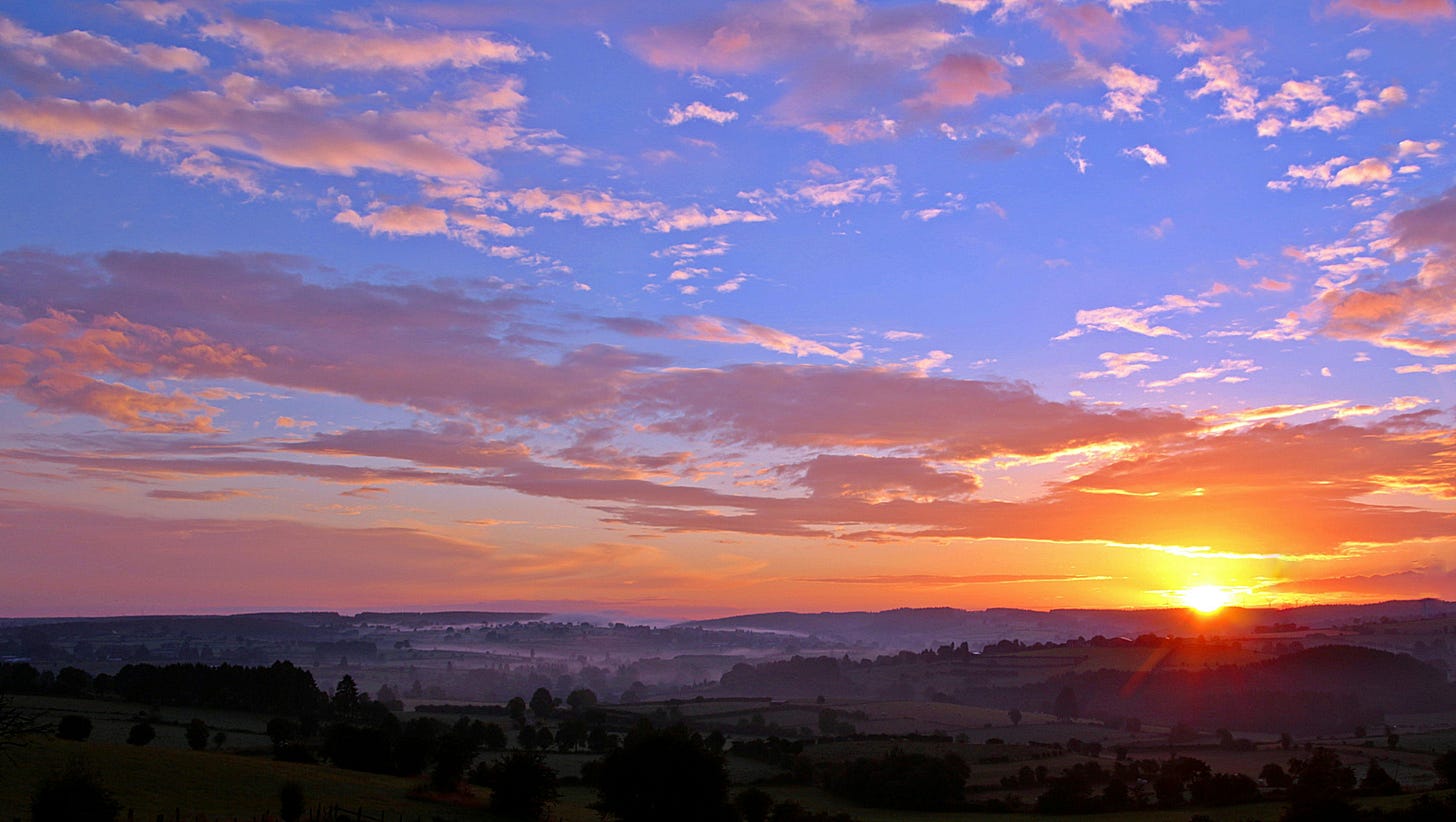Tomorrow is the Lord’s Day. We come to the Lord’s Day every week from a variety of places and experiences. Sometimes we are coming off a week of wins with an abundance of joy in our hearts. Other times we are coming in discouragement, even despair, longing for the real Lord’s Day, the eternal one, to come so that we can be done with this wretched, sin-cursed world with its misery and sorrows.
The Lord’s Day is the New Covenant Sabbath. I know not everyone agrees with that. I won’t try to defend that claim by argument or exegesis right now. I have done so before and almost certainly, God permitting, will again. You can take it or leave it. But if this claim is correct, then certain things follow.
The Lord’s Day is not merely a day of rest; it is a day of worship and rejoicing. We are called not to idleness but to feasting, not to inactivity but to holy activity. The New Covenant Sabbath means that Christ has “finished” his work of atonement and entered into the eternal rest in the presence of God that we have been waiting for so long (cf. Hebrews 4). We rejoice because we are not waiting for the fulfillment of the promises, we are not still in the wilderness—even if God calls us back there from time to time—we are not hoping for the promised King. The King has come, he has dealt the Dragon a mortal blow, and now our Sovereign sits upon his throne waiting for all his enemies to be placed under his feet.
The Lord’s Day is not the end of a week but the beginning of a new creation. The New Covenant Sabbath is the day of resurrection, the day of the Spirit’s descent, the 8th day that symbolizes new creation. On the first day, God said: Let there be light, and there was. Light appeared in the cosmos, light appeared from within the open tomb, light appeared from the heavens as the Spirit rushed upon the apostles in wind and fire. The Lord’s Day is a day of new beginnings. If any man is in Christ, he is a new creation. What was before is no more. All things have been made new.
The Lord’s Day is the beginning of our reception of the eschatological comfort and victory won by Christ on Calvary and in his resurrection on the first day of the week. “Behold, the tabernacle of God is with men, and He will dwell with them, and they shall be His people. God Himself will be with them and be their God. And God will wipe away every tear from their eyes; there shall be no more death, nor sorrow, nor crying. There shall be no more pain, for the former things have passed away” (Rev. 21:3-4). Is that here and now or later, in heaven? Yes. The state described in the first half of Revelation 21 is eschatological—it lies beyond the resurrection of the dead and the final judgment—but the blessings enumerated are experienced by the saints now, albeit imperfectly, through their union with the resurrected, ascended, and glorified King. We come to the Lord’s Day weeping, and God wipes every tear from our eyes. Our hearts are burdened with sorrows, but the Lord heals our wounds and binds up what is broken. He restores my soul, not just later after we die, but right now, through the grace of Christ bestowed upon his Body by the Spirit.
The Lord’s Day is the New Covenant Sabbath, not the Old Testament one. There is continuity with the latter, but also discontinuity, fulfillment and transformation through the resurrection of Christ. The Sabbath was made for man, and not man for the Sabbath. The Lord’s Day is grace, not guilt, a blessing, not a burden. It is God’s gift to his saints (and the world) to comfort, renew, and strengthen their hearts. O come, let us adore him.




